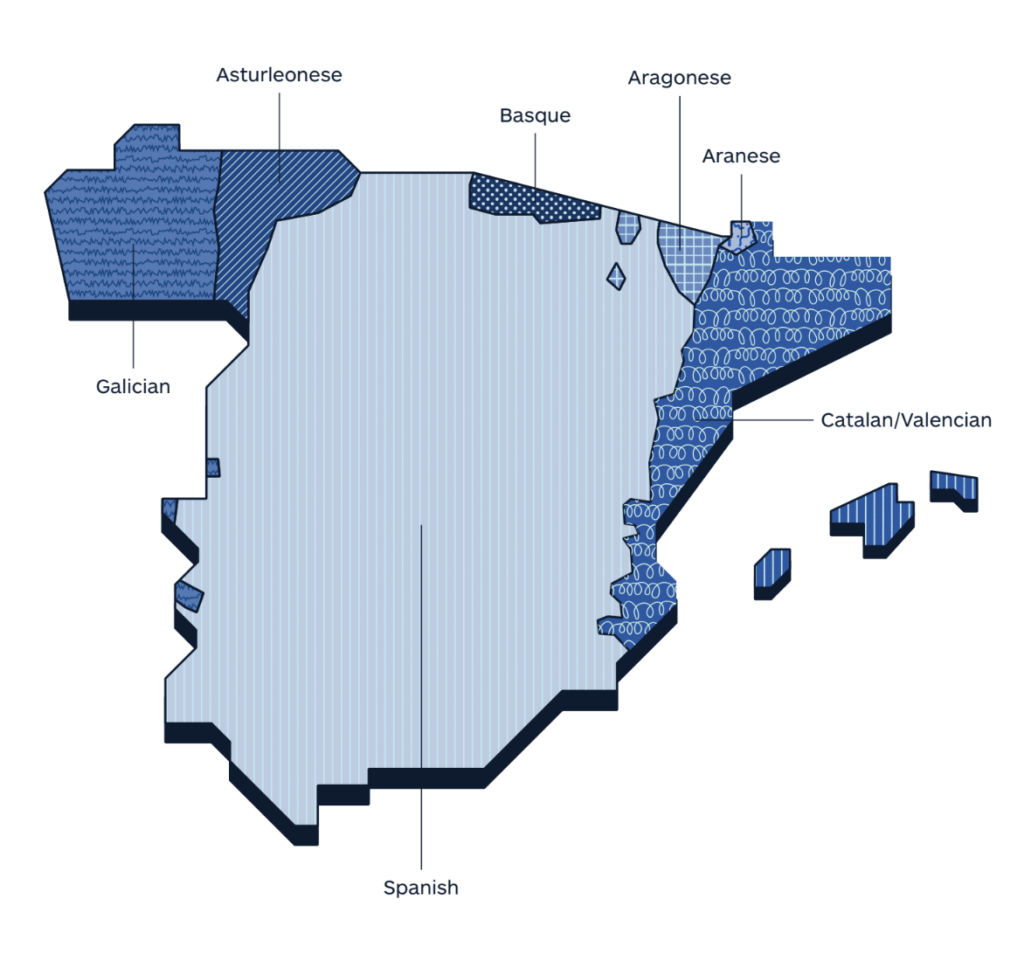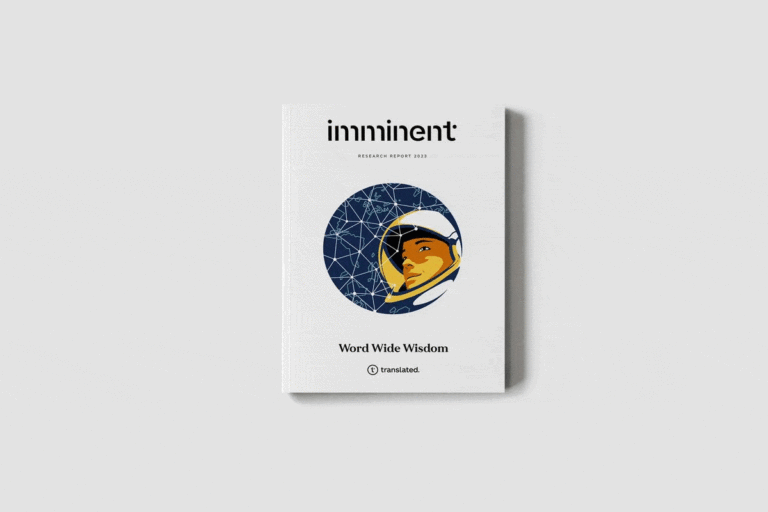Language
Catalan is spoken by 10 million people in Catalonia, the Balearic Islands, the Valencian Community, Andorra, Aragon, Alghero, Roussillon, and Carche.
On average, less than half the residents of these areas use the language daily. And Catalonia is no exception to this rule, with 40% of residents using Catalan as their lingua franca. *
* Catanyol = “street” Catalan. Due to the invasive presence of Castilian, spoken Catalan is packed with lexical borrowings and expressions acquired from Spanish.
Catalonia is an ancient European nation with many decades of history. A Mediterranean country, crowned by the Pyrenees, it has long been a crossing point between Europe and the Iberian Peninsula and, above all, a land of confluence and cultural cross-fertilization. Its geographical position has facilitated cultural exchange between north and south as part of a dynamic that has evolved over the years, shaping the personality of the region. Catalonia’s identity has thus been formed gradually, in a state of constant tension enriched by many influences that have forged the character of an open and engaging society, with its own history and a firm will to exist.
Ever since the region emerged as a political entity back in the 8th century, the relationship between Spain and Catalonia has always been combative. In the modern age, Catalonia has had to exist alongside a state that has opposed it. Both when controlled by authoritarian regimes and when governed by democratic parties, Spain has challenged, suspended, or abolished Catalan legislation, self-rule, and local laws.
Catalan, the language of Catalonia, is among the tools that the region has harnessed over the years to reaffirm its desire to independently choose its own future.
Today, Catalan is the primary language of state education, and it is used in politics, religious services, public administration, and place names. The language is viewed and promoted as a tool by which to assert the nation’s identity and unity. However, for those who do not speak it, the compulsory requirement to use Catalan can easily become counterproductive, a limiting factor for access to the workplace, culture, and public life. The language can become an instrument of separation, a guide used to define belonging and distinguish allies from foes.
While those who lived through the end days of Franco’s dictatorship supported the use of Catalan with the conviction that it would preserve and promote cultural heritage, the following generation had a far more conflict-ridden experience of the language question. At present, Spanish is used by 60% of people in Catalonia: a sure sign that, while the affirmation of the region’s will must involve Catalan, it must not exclude dialogue in Spanish.
Languages and dialects of Spain

Yet there are still those who explicitly state that they feel uncomfortable expressing themselves in Spanish and would prefer any other European language. The problem is therefore linguistic but also political, because Spanish (a language spoken by a third of the world’s population, as well as by the rest of Spain) is associated with the hostile and perpetually adversarial government of Madrid.
“Write, talk, think in Catalan!”

World Wide Wisdom
Research Report 2023
It is possibile to improve the understanding between people that speak different languages and thus improve their ability to do things together in a smarter way? Can it be that a multilingual group is able to do better things? In order to answer to these questions we need to take into account how groups of people think and work together and how their collaboration can be improved.
Get Your Copy Now!This was the slogan written on one of the protest signs stuck up by students to reaffirm the exclusive use of Catalan in universities.
One thing is certain: the preservation of Catalan, to ensure that it represents an opportunity to define an identity rather than a limitation on identity itself, must go hand in hand with its integration with Spanish. Only thus can it play a fundamental role in the search for a solution to the conflict and in the quest for self-determination in Catalonia, a political and territorial community integrated into the nation of Spain that claims the right to freely decide its own future.
Photo credit: Raimond Klavins, Unsplash
